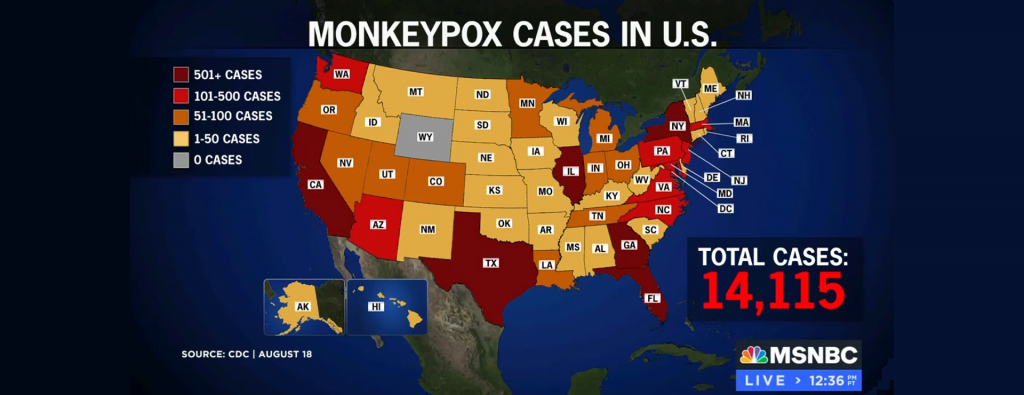Monkeypox is capturing headlines all across the world, but unlike Covid-19, which represented a novel disease, monkeypox is endemic in parts of the world. In just the first two months of this year, the DRC had 704 reported cases, with more than 10,000 infections and 342 deaths in the past two years. In a single prison in Nigeria earlier this year, 37 inmates were diagnosed with the disease. So why the sudden global media attention to a disease that is endemic and has infected so many people before it garnered headlines?
The answer is that the media trajectory of monkeypox is following that of Ebola just under a decade ago. As Ebola raged, the global press largely ignored it as something happening "elsewhere" that wasn't "important" to the world. Once the virus reached American shores, however, media coverage soared and it was suddenly viewed as a global risk requiring the full resources of the world to combat.
In a similar vein, endemic monkeypox was viewed as so unimportant by American and European media prior to May that the only real coverage it received was in pharmaceutical company press releases. Once it suddenly was a risk to the United States, it warranted coverage.
Once again, this starkly different coverage reminds us just how skewed and biased the news media is and how little we hear from the world around us when we turn only to the media in our own countries.
